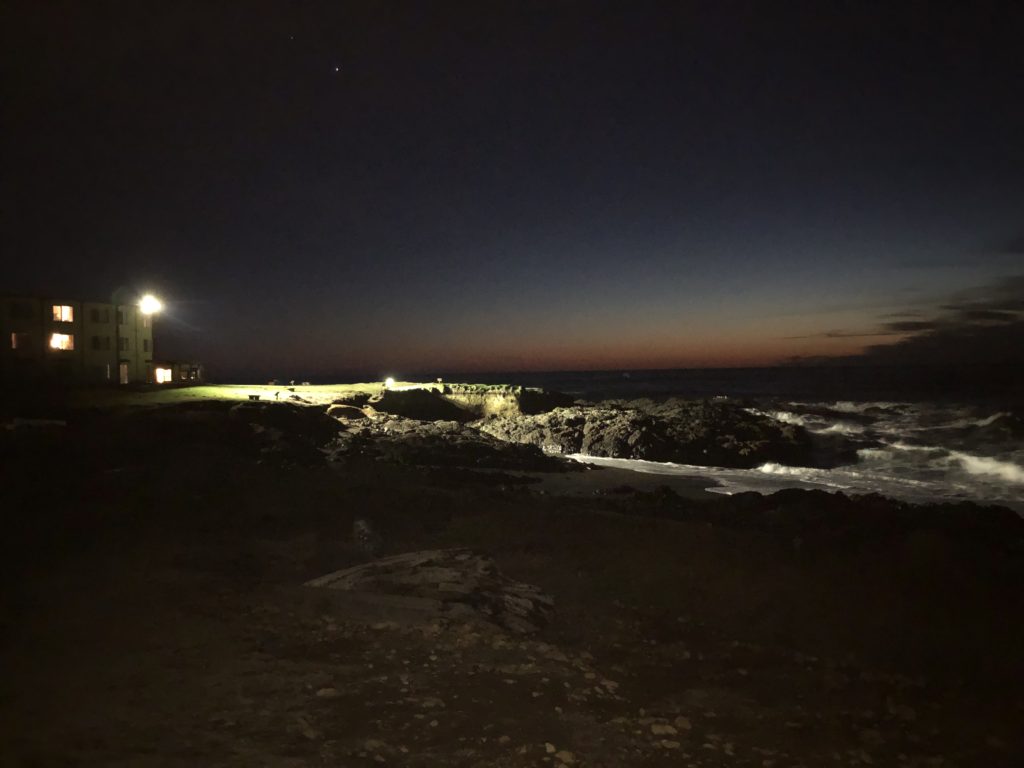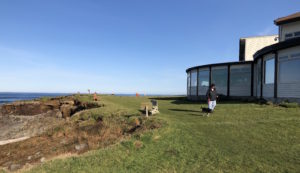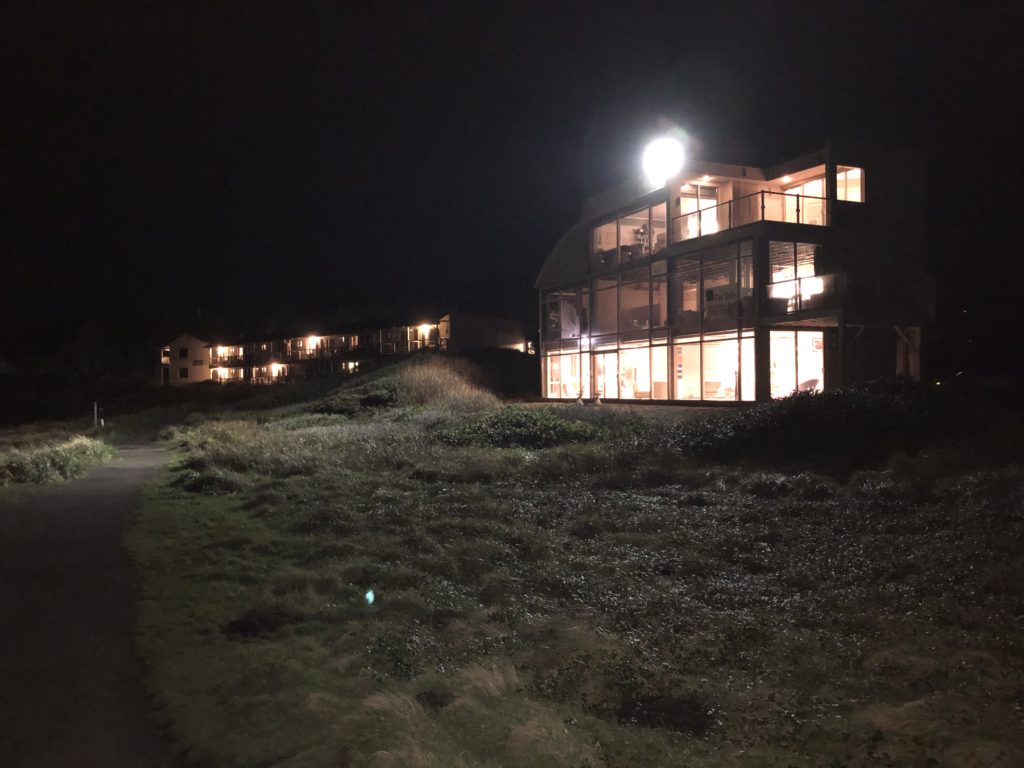
The Yachats City Council has sent a proposed lighting ordinance back to the Planning Commission for more work after pushback from two large motels upset about a suggested ban on marine lighting.
If such lights were banned, Adobe Motel general manager Anthony Muirhead told the council last week that for safety reasons the owners would build a fence and gate along its ocean bluff property, restrict use to guests only, and cut off public access to the popular 804 Trail to the north and south.

The Planning Commission has been working for more than a year on updating the city’s lighting ordinances, going through regulations and language from elsewhere and using a template from the League of Oregon Cities.
Most of it has to do with residential or commercial “trespass” lighting – lights that shine off one person’s property onto someone else’s.
But a small section addresses marine lighting, and the commission has struggled if – or how — it should address bright lights at the Adobe and Overleaf motels that shine onto their property and the nearby surf. There are also a handful of oceanfront houses with similar intense lighting that would also be banned.
During its work, the Planning Commission also found a city nuisance ordinance that would seem to prohibit marine lighting, but which has not been enforced.
The commission scheduled a special meeting for 4 p.m. Tuesday, Dec. 1 to take up the issue again.
The commission first sent the proposed lighting ordinance to the City Council earlier this fall, but the council returned it for tweaks of other issues brought up in a public hearing. That original ordinance would have allowed the Adobe and Overleaf motels to keep their marine lights but set a 10 p.m. shutoff time.

During that discussion commission member Jacqueline Danos argued that “most of the people in this community say they want dark skies and no marine lighting.” She also said such lighting harms the marine environment and “It’s been proven it’s bad for the animals out there.”
Commission members agreed, saying if the motels were worried about safety issues they would have a year to change their exterior lighting to illuminate paths and trails and other outside facilities for guests.
That’s what drew Muirhead’s ire during the council’s Nov. 18 meeting.
Motel manager challenges opinions
Muirhead argued that the commission’s proposal was based more on opinions than facts, especially on the environmental effects of marine lighting and Danos’ statement that most Yachats residents were opposed it.

“I would appreciate more information about the sources and scope of those opinions,” Muirhead said in a letter to the council, which Mayor John Moore read into the record. He argued that “surf lighting” and “marine lighting” are different and that the surf lighting from the Adobe is “much less intrusive” than marine lighting.
He said the lights, which have been operating for more than 40 years, are also an attraction for the 50,000 guests who stay at the 110-room motel each year or use its restaurant and lounge.
In a three-page letter to the council, Muirhead said the lights that sit atop the motel and on the edge of the ocean cliff are a safety feature to help prevent guests and others from walking off the cliff at night.
“Taking away our lights would be taking away a precaution we have set in place to protect our guests,” he wrote, arguing that ambient or pathway lighting would not be adequate.
“If we reduce lighting and someone gets hurt out there the Adobe and not the city will pay for it,” Muirhead told the council. “These are serious questions … it wasn’t meant to be a threat. I have to protect my owners and my guests.”
But Planning Commission vice chair Lance Bloch said Muirhead’s letter to the council was a “blatant threat” to the city and its residents “in order to not have to take action on marine lighting.”
He said three of the motel’s five lights are perched on the cliff’s edge and do nothing to enhance safety.

Is there a compromise?
Muirhead got support from Drew Roslund, a part owner and manager of the Overleaf Lodge, which also has lights on its roof that illuminate the grounds below and the ocean’s edge. Those lights have also been operating for more than 40 years, Roslund said, and no one has come to him to complain.

“Are we going to pick one thing as a nuisance?” she said, also agreeing with Muirhead that residents have not been polled on their views.
But Danos argued during the council meeting that lights shining on the surf are not safety lighting.
“We’re not saying you can’t have lighting on your property … what we’re saying is that there are alternatives and you have a year to comply,” she said.
Moore and several councilors said now might not be the time to put additional restrictions on businesses struggling during the coronavirus pandemic. Others wondered aloud if there was room to compromise. Roslund said he and Muirhead would be happy to work with the Planning Commission to see if they could agree on some sort of seasonal curfew.
“This is something we really need to work on so there’s a good compromise,” said Councilor Jim Tooke. “Don’t dig your heels in … or we’re going to have something we really don’t like.”




The hotels are obnoxious to perpetuate such light pollution, and even more obnoxious to make threats about it.